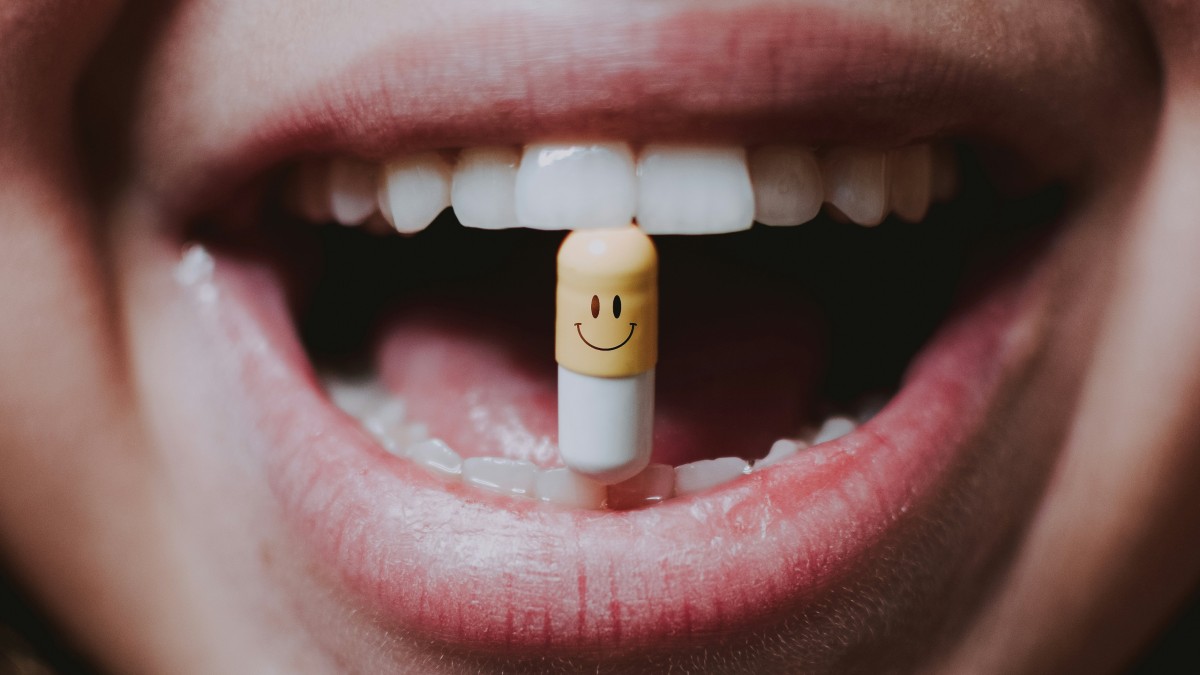
Could Ketamine Be The Solution To Chronic Depression?
Research shows how ketamine is shedding its infamous reputation and making a difference against treatment-resistant depression.

By Mark Travers, Ph.D. | April 16, 2024
Although it is not yet approved by the Food and Drug Administration, off-label, supervised use of ketamine, a Schedule III substance, is allowed on a case-to-case basis in mental health treatment. What is FDA-approved, however, is esketamine, a close relative of ketamine that has shown promise in treating depression that isn't responding to the usual treatment methods including therapy and medication. This is not surprising, as there is substantial evidence of ketamine's therapeutic effects, with early studies linking its use to relief in depression symptoms.
More recently, ketamine is being studied for its therapeutic effects beyond depression. A study published in Ibrain suggests that ketamine could be beneficial in treating post-traumatic stress disorder and depression in patients who have failed to respond to traditional treatments such as talk therapy and psychiatric medications. Animal research, clinical trials and case reports have shown significant reductions in PTSD-related symptoms and rapid antidepressant effects.
However, the same study also raises some concerns over the long-term efficacy and safety of the drug, particularly in light of its effects on the nervous system.
Another recent article published in Missouri Medicine explores the availability of unsupervised and unregulated ketamine treatment through online for-profit companies. The review discusses the dangers of patients self-administering ketamine at home, particularly in the absence of proper medical supervision.
While ketamine's potential as a treatment for mental illness is undeniable and public interest in alternative therapies for certain conditions is evident, it's crucial to use caution and evidence-based practices in ensuring patient safety and wellness.
One mental health company that addresses the demand for novel treatments in treatment-resistant depression and other mental health conditions is Being Health. I spoke to Dr. Allie Sharma, co-founder and chief medical officer at the New York City-based company, to gain perspective on what is involved in ketamine infusion therapy and why it is likely to lead a change in how we approach the mental health of those who find traditional methods of treatment ineffective. Here are two important things I learned from our conversation.
1. There Are Safety Protocols And A Stringent Screening Process For Ketamine Infusion Therapy
"Treatment-resistant depression is defined as at least two failed medication trials of antidepressants for the current episode of depression," Sharma explains. "We offer Ketamine Infusion Therapy for treatment-resistant depression, given that Ketamine has been shown in numerous studies to provide rapid improvement and durability of response and has the potential to make a long-lasting impact in people's lives by alleviating the symptoms of depression."
Being Health's ketamine-based treatment was developed over the course of nearly two years with experts in the fields of anesthesiology and psychiatry. It unfolds through a structured, five-step process designed to ensure the safety, effectiveness and personalized care for each patient undergoing ketamine infusion therapy. Here's a breakdown of the process:
- Initial consultation. A thorough evaluation by a board-certified psychiatrist assesses suitability for ketamine therapy, covering medical, psychiatric and substance use history, coordinating with other care providers and ordering lab tests according to protocol. For example, someone with a history of severe substance use would not be eligible for treatment, as it could lead to physiological and psychological complications.
- Ketamine-assisted psychotherapy preparation. Before the first infusion, a session with a ketamine-assisted psychotherapy-trained therapist helps patients prepare mentally and emotionally, setting intentions for their therapy.
- Ketamine infusions. Patients undergo a series of ketamine infusions, typically twice a week for three weeks, monitored by a certified registered nurse anesthetist for a tailored and supervised experience. The schedule may be adjusted as needed.
- KAP integration. After infusions, sessions with a KAP-trained psychotherapist help integrate the experiences into ongoing mental health care, separate from infusion times.
- Ongoing care. Continuous support is offered to patients, including symptom tracking, optional maintenance infusions and access to monthly group psychotherapy, ensuring comprehensive, long-term mental health care.
This procedural approach ensures that individuals at risk or unlikely to benefit from ketamine are carefully screened out, prioritizing patient safety and the effectiveness of the treatment.
2. Ensuring Fair And Safe Access To Ketamine-Based Treatments Is Important
A 2022 narrative review published in the Journal of Pain Research points to ketamine's beneficial and significant role in reducing symptoms of depression, both initially and over time. Interestingly, it was also found to have improved the psychotherapist-patient relationship, significantly enhancing treatment outcomes.
"KAP refers to a psychotherapy session conducted by a KAP therapist outside—not during or immediately after—the infusion. Therefore, the potential for ethical issues to arise during our KAP sessions is minimized since patients are not in an altered state of consciousness during the KAP sessions."
This measured approach to therapy involving ketamine is vital as it ensures that therapeutic benefits are maximized while maintaining the highest standards of patient safety and ethical treatment practices.
The FDA's approval of esketamine, a ketamine derivative, for specific depression cases marks a significant milestone, signaling a shift toward more widespread acceptance of these novel treatments. Another beacon of ketamine's potential in mental healthcare is the fact that some insurers are starting to offer coverage to certain stages of ketamine infusion therapy, such as initial consultations (for screening) and KAP sessions.
A commitment to safety, through rigorous protocols and expert-led care, exemplifies the responsible advancement in this field. As research continues, particularly in areas like PTSD and alcohol use disorder, and as other novel substances such as MDMA and psilocybin enter clinical trials, regulations are expected to evolve to ensure these therapies' safe and ethical use. This dynamic interplay between innovation and regulation underscores a hopeful direction for mental health treatment, promising more effective solutions for those grappling with persistent mental health challenges.
A similar version of this article can also be found on Forbes.com, here, and on PsychologyToday.com, here.
